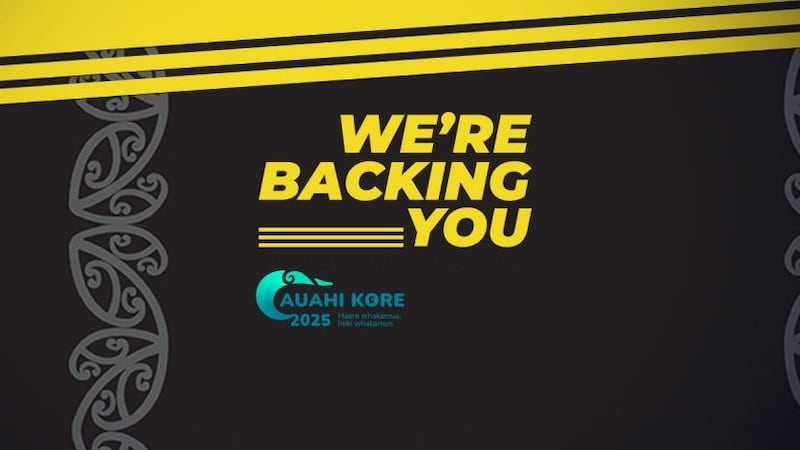World Smoke-free May, an annual event that supports whānau aspirations to be free of tobacco addiction and its harmful effects, is now underway.
The theme in Aotearoa is ‘We’re Backing You’: a team-focus effort to get anyone to quit and stay smokefree. That includes messages encompassed with whanaungatanga and wrap-around support, and is backed with a whakataukī or proverb.
“Taituara, taiwhare, taieke – with backing even the tallest of ocean waves can be conquered.”
National Tobacco Control Advocacy lead Leitu Tufuga is making sure Hāpai Te Hauora’s campaign is seen wide and far to help reduce the smoking stats, particularly for Māori and Pasifika who have some of the worst rates of smoking in New Zealand.
And she’s reassuring anyone who might stumble along their smokefree journey.
“There are a few incentives for whānau to stay smokefree during the month and, if they do fall off the wagon, that’s okay. There’s the next day for them also to try again.”
'We can't put the brakes on'
Even though vaping stats are not that far off in comparison, Tufuga says they are separate issues on their own. But while vaping can be the backup for people who give up smoking, it has its own harms particularly for rangatahi who have high usage numbers, whether they smoked tobacco before or not.
“We are seeing a growing number of our rangatahi and people who have never smoked before, so we’re trying to deal with that at the same time too.
With the Smokefree Aotearoa 2025 Action Plan nearing its due date, Tufuga says the country is on track – “if everyone does their bit”.
“We can’t put the brakes on now. This is the time to put in a lot more effort into all of our resources, ensure the workforce is ready, have the capacity and our community are our champions.”
Though Māori smoking numbers have dropped, the depth of the drop is not enough, according to Tufuga, as a New Zealand Health Survey revealed the numbers for Māori are down to 19 percent while Pacific peoples are at 18 percent, compared with the rest of the country at 7.5 percent.
And while the goal may just be short of 5 percent by 2025 depending on how the campaign goes until then, Tufuga is urging everyone to give a helping hand to decrease the numbers for Māori and Pasifika.


